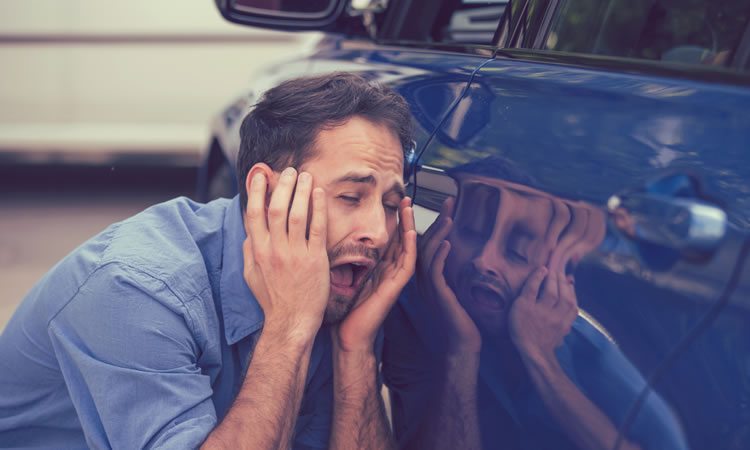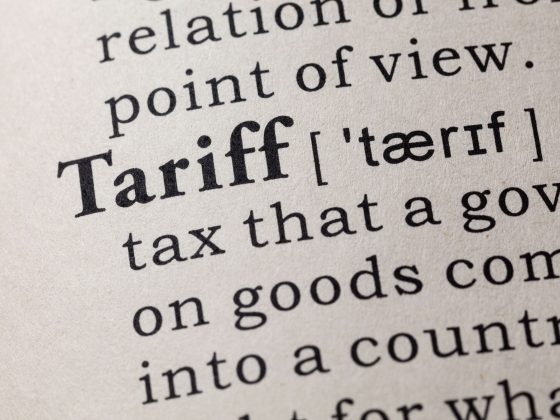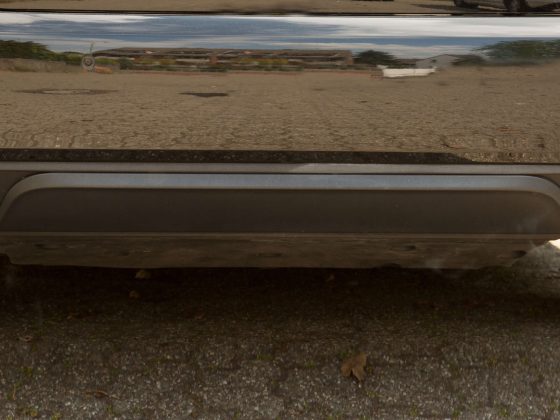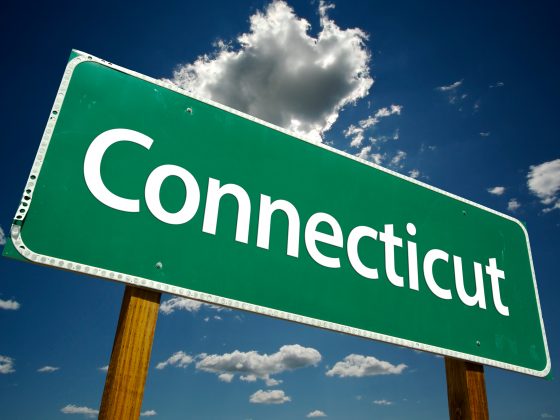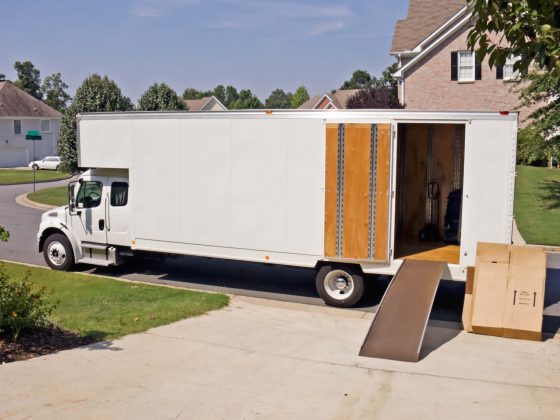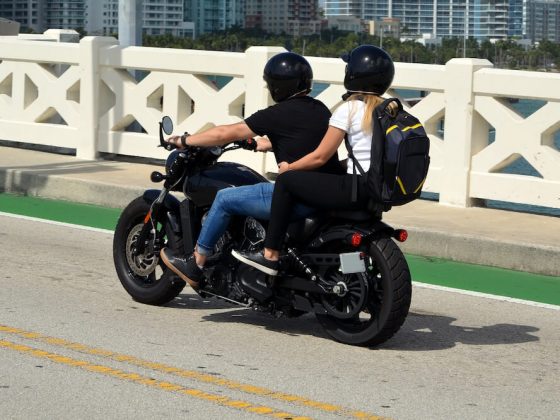Insurance industry experts say that average drivers will make an accident claim about once every 18 years. Figures surrounding car accidents in the United States are increasing by the year and the advent of mobile devices (unfortunately) does not seem to be slowing this growth.
Use eTags© to Quickly Complete Your DMV Service. Renewals, Title Transfers and More, All Online!
That makes your odds of getting into a car accident more a matter of when than if.
Despite the likelihood of experiencing multiple accidents throughout a lifetime, many of us don’t fully understand the appropriate steps to take after a car accident.
Part of the reason for this is that there are so many different car accident scenarios. Is what to do after a minor crash different that what to do after a major car accident? How long does a car accident stay on your record? What if you are in a car accident with someone without insurance? Keep in mind, car crash laws can vary by state.
Below is a general guide on what to do in a car accident, step by step.
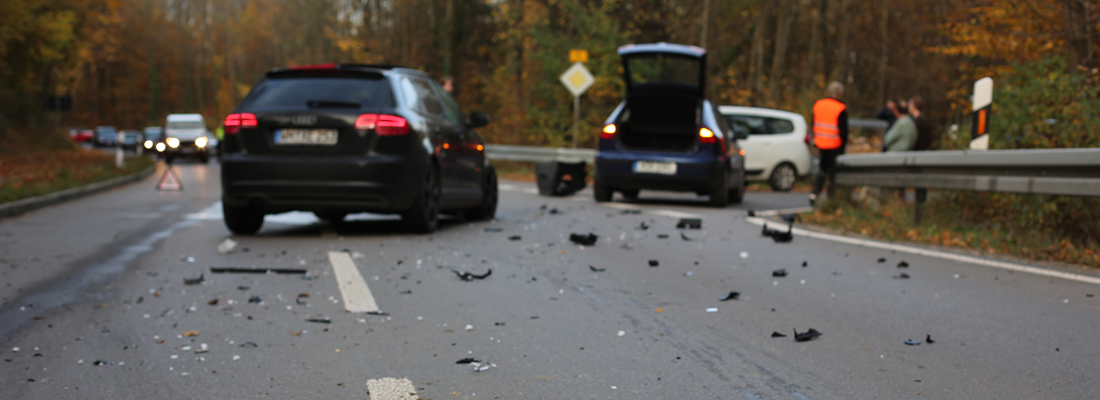
Got Into a Car Accident?
When you are involved in a car accident, a flood of emotions can quickly come forward. There can be anger, fear, stress, frustration, and more. It is best to keep a level head and keep emotions in check. Try to focus as best as you can, on the task at hand.
What happens after a car accident?
The aftermath of a minor car accident and a major car accident can be vastly different, and so can the steps you take afterward.
What to do After a Minor Car Accident
If you are involved in a minor fender bender it is still best to contact authorities. Reporting a car accident and getting a police report can verify an incident for any future claims. In a minor car accident, vehicles should be safely moved out of the way of traffic. And flashers should be turned on.
Do not make any statements of guilt or sign any forms unless they are for the police or your own insurance company. While the incident is fresh in your mind, makes notes about it and exchange names, phone numbers, license plate numbers, and insurance information of everyone involved. Take photos of any damage to either vehicle and the location of the incident. You’ll then want to contact your insurance company as soon as possible to begin the claims process.
What to do After a Major Car Accident
A major car accident differs from a minor car accident in that you’ll want to determine the extent of any injuries and leave the vehicles in place, especially if there have been serious injuries. Unless taken for medical treatment, principals should remain at the scene in a safe place. Keep in mind, major traffic accidents can frequently be the cause of additional accidents. Contact police, exchange information and seek out and talk to witnesses. Take photos and contact your insurance company. If you experience any injuries, seek treatment promptly and track any associated expenses.
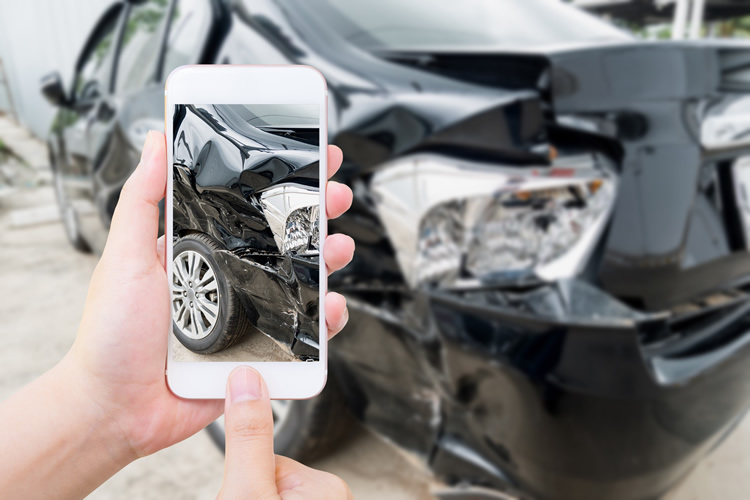
Car Accident Scenarios
What happens after a car accident can vary depending on the car accident situation.
First Car Accident
Many times, a first car accident occurs when drivers are young. It is important to keep calm. This is not the time to worry about parental reactions or insurance rates going up. Focus on the health of those involved, get out of traffic, and contact the police.
Multi-Car Accident
Multi-vehicle accidents can be complicated and often ultimately lead through the court system. This makes documentation and the exchange of information critical following any multi-car accident. Get contact information from those involved as well as any witnesses.
Car Accident With Someone Without Insurance
If you are involved in a car accident with someone without insurance, you will likely have to contact your insurance company for coverage. Some states require drivers to carry Uninsured Motorists Insurance (UMI) and some states are “no-fault” insurance states. It is particularly important you get a police accident report in an accident with an uninsured driver.
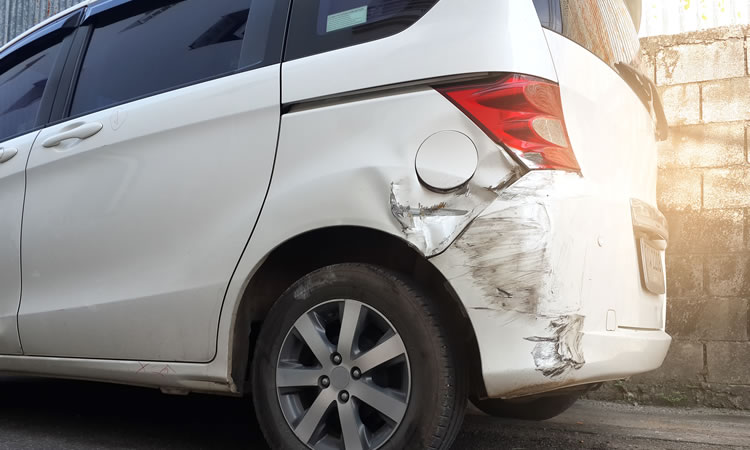
Drunk Driving Car Accident
When involved in an accident involving a drunk driver, you will want to try to get information about the driver while limiting your interactions. It is important you contact authorities as soon as possible. Do not be persuaded to not call the police as in some states in some circumstances, reporting a drunk driving accident with injuries is required. It is important to remain calm, keep your distance from the person you may feel is intoxicated, and to not make any admission of guilt.
Car Accident With Suspended License
A driver involved in a car accident with a suspended license is not necessarily at fault in any auto accident, nor do they give up their legal rights. There are indeed situations where a driver in a car accident with a suspended license will be given a citation for the infraction, the other driver can be cited as being at fault.
Hit and Run Car Accident
A hit and run accident is where a driver involved in an accident leaves the scene of that accident without exchanging information. If you’ve been involved in a hit and run accident, try to get as much information or even a photo of the hit and run vehicle. Contact police and get photos of the damage. Of course, you’ll also want to contact your insurance agent. Most states have also have hit and run laws – parked car scenarios that consider minor damage incidents, like hitting a parked car, a misdemeanor, although fines can be significant.
Car Accident While Driving for Work
If you are operating a motor vehicle that is owned by the company you work for and driving for work purposes, both you and the company may be held liable. The same is true in the case if the other driver is operating a company vehicle for work. It is up to the employer, however, to properly insure the vehicle.
Accident in Personal Car on Company Time
A company can be held liable for damages in an auto accident caused by a driver using his car for work purposes. A company may have “Vicarious Liability” as the driver was working as an agent for the company. Liability for damages can also occur if negligence can be proven on the part of the employer.
What happens if you crash a leased car?
If you are driving a leased car it is actually owned by the leasing company. You, however, are required to insure it and document any damage to the leasing company. If you still have lots of time on your lease you will likely be better off getting it repaired, even if you have to pay a deductible.
Returning a Leased Car After Accident
When you return a damaged vehicle to a leasing company they will assess any damage, and likely penalize you for that damage.
Crashing a Rental Car
Steps to take following crashing a rental car are similar to those taken after crashing a personal car. However, depending on who is paying for the damage, the claims process will differ. You should obtain a police report and contact the car insurance rental company.
Who pays for the rental car after an accident?
This depends on your coverage. It could be a combination of your own car insurance, supplemental car insurance purchased from the car rental company, or even the credit card company you used to pay for your car rental. Keep in mind, your credit card coverage will likely not cover another vehicle involved if you are at fault.
Who’s at fault?
Unless you live in a no fault car accident state like Florida, determining who is at fault in an accident will determine who is responsible for damages.
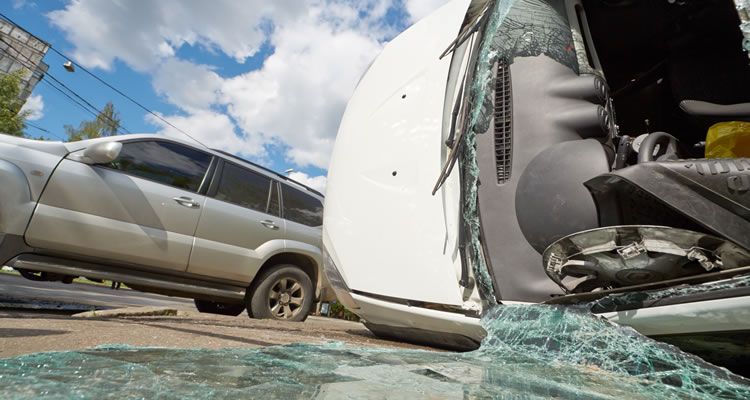
Who is at fault in a car accident rear ending?
It is generally assumed that rear end accidents are the fault of the driver of the rear vehicle. This is often but not always the case. All drivers have a duty to operate vehicles responsibly. When a driver is proven to have negligently operated a vehicle, like cutting off another driver or “brake-checking”, they can be found negligent.
What to Do After a Car Accident – Your Fault
Even if you are at fault in an auto accident it is best to not accept blame or sign any papers other than those provided by the police following an accident. Take the same steps as you would following any accident, but you may consider the additional step of securing legal representation.
Not My Fault – What to Do
If you are involved in a car crash that is clearly not your fault, take notes of any comments made by the other driver that may indicate acknowledgment of guilt. Of course, you’ll want to take photos, exchange information, and get copies of any police reports. If you are involved in a no fault car accident, where neither party is found at fault, or if you live in a no fault state, you are responsible to cover the damage to your own vehicle in any car accident. Insurance laws vary by state, but all states have some form of financial responsibility laws.
This, of course, does not mean there aren’t people driving without insurance. If you have no car insurance, even you are not at fault in an accident, you will be cited.
Other Driver Has No Insurance
If you are involved in a car accident and the other driver, who is at fault, has no insurance, you will have to rely on your own insurance to cover any damages. You could also pursue legal action through the courts. The parties may also be willing to sign a release of liability form, in which the at fault party agrees to pay for damages if the other party does not pursue legal action.
How to Report a Car Accident
Car accident laws vary state by state. Depending on the seriousness of a car accident, many states require car crash accidents to be reported. Reporting a car accident is relatively simple, but the more details you can provide to first responders the more appropriate help can be dispatch. If it is a minor car accident, be sure to let them know.
On the other hand, if there are multiple cars involved with apparent injuries, that information can also be very valuable. If you are reporting an accident you are involved in, report the incident without taking blame.
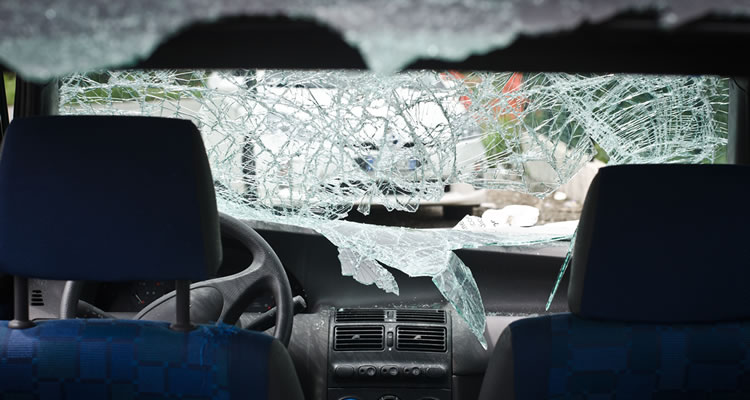
Do you need a police report for a car accident?
You will want to get a police report of any car accident where an insurance claim will be made, injuries occurred, a drunk driver was involved or when potential legal action may result from the incident. A police report will document the accident, name those involved, and who, if anyone, was cited in the accident.
Reports can usually be accessed from the police or sheriff department who managed the scene. There is generally a fee involved. If you want to know how to get a car accident police report online should know that not all states provide this service. If you ask for a report and get a “no police report filed” message it may be because the incident was minor or the accident may have occurred on private property.
Do I need a lawyer after a car accident?
This will depend on the circumstances of your particular accident. If you have sustained injuries and insurance proceeds aren’t enough to cover your care, you may wish to pursue legal action. In some cases, people will hire legal representation after experiencing challenges working with their own insurance company.
You may also wish to pursue legal action if a commercial vehicle or negligence is involved. If you are wondering when to get an attorney for a car accident, generally, the sooner the better. This is especially true when injuries are involved.
How to Settle an Auto Accident Claim
Auto accident claims can be settled outside of the court system through use the of a ‘Release of Liability’ form. This form is an agreement by two parties that legal action will not be pursued if the at fault party agrees to pay certain damages. This is a legally binding document and is a way parties involved in an accident can settle an auto accident claim.
What happens if someone sues you after a car accident?
Lawsuits resulting from an auto accident can come from another driver, an injured passenger, or an insurance company. You should seek legal help immediately if you are being sued.
How long does a car accident stay on your record?
Generally speaking, auto accidents will affect your insurance and driving record for three years. In more serious incidents like those involving DUI, some states keep them on your record for ten years or more. Some insurance companies will consider an at fault accident for up to six years. This length of time is important because multiple offenses will cause your insurance rates to increase.
How much does car insurance go up after an accident?
This might be, literally, the million dollar question. Some companies will give you a pass on an accident if it is your first one or if you are not at fault. After all, on average, drivers will experience two to four accidents in their lifetime. If you are at fault and accidents occur more often than once every six years, rates will begin to skyrocket. Rates are also based on the seriousness of any traffic violation or citation you receive, your age, where you live, and if you get multiple moving violations in a short period of time.
Ideally, we would never find ourself in any of these scenarios. Nonetheless, being prepared should a crash occur should alleviate some of the stress and help you begin moving forward.
